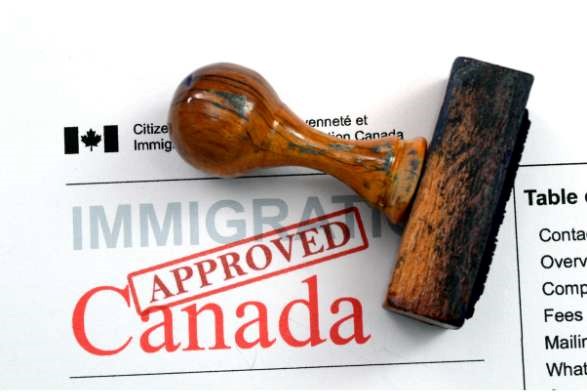Enter your email below to receive weekly updates from the Ashton College blog straight to your inbox.

The Immigration and Refugee Board of Canada (IRB) is a federal, independent tribunal responsible for making decisions on immigration and refugee matters.
Here is a summary of some of the most important things you need to know.
The IRB assesses claims from individuals seeking refugee protection in Canada. They determine if someone qualifies as a Convention refugee or a person in need of protection.
This involves in-depth hearings to understand if the applicant has a well-founded fear of persecution in their home country based on factors like race, religion, nationality, political opinion, or membership in a particular social group.
The IRB conducts hearings to decide whether a foreign national or permanent resident is admissible to stay in Canada.
This can involve situations where inadmissibility concerns exist, such as criminality, security risks, health issues, or financial reasons.
The IRB considers the specific circumstances of each case and weighs them against the legal framework for admissibility in Canada.
The IRB hears appeals from decisions made by immigration officers on various matters. This includes appeals related to permanent residence applications, sponsorship applications, and other immigration decisions.
The IRB reviews the original decision, considers new evidence if presented, and issues a final ruling on the appeal.
An individual can always represent yourself at an IRB hearing. The IRB offers resources and procedural guides to help understand the process and present a case effectively.
You can designate a friend, family member, or someone else you trust to represent you at your IRB hearing. This representative cannot provide legal advice or act as a lawyer.
As of July 1, 2023, only the following individuals are authorized to provide legal services before the IRB:
It is crucial to ensure your legal representative has the proper qualifications and authorization to appear before the IRB. If you choose to be represented by a lawyer, paralegal, or RCIC-IRB, they will charge fees for their services.
The Immigration and Refugee Board is a large organization with multiple divisions handling specific types of cases:
By fulfilling these roles, the IRB plays a significant role in upholding Canada’s commitment to protecting refugees while ensuring the integrity and fairness of the immigration system.
The individuals who make decisions at the IRB are called members. They are not judges in the traditional sense, as they do not require a formal legal background.
IRB members go through a rigorous selection process and receive extensive training in immigration and refugee law, procedures, and evidence assessment. It is appropriate to refer to IRB members as IRB Members or Decision-Makers.
There are a few key reasons why IRB members aren’t judges:
There have been some criticisms about the lack of formal legal training for IRB members. However, the IRB emphasizes the comprehensive training and expertise members receive to ensure fair and informed decisions.
Decisions from the Refugee Protection Division (RPD) can be appealed to the Appeal Division (RAD) of the IRB. This appeal process allows for a review of the original RPD decision. There are no appeals from decisions made by the Refugee Appeal Division (RAD). The RAD decision represents the final stage of the refugee determination process within the IRB. Their decision is considered a comprehensive review of the initial Refugee Protection Division (RPD) decision.
However, this does not completely shut the door on challenging a negative RAD decision. An individual can still pursue a judicial review in Federal Court, but the process is complex and has a high bar for success. The court will only intervene if there are serious errors in law or fairness during the IRB process.
In some limited circumstances, individuals who receive a negative RAD decision may be eligible to submit a new refugee claim based on significant changes in their personal circumstances or the situation in their home country.
Canada also offers humanitarian and compassionate (H&C) programs that may be an option for individuals facing hardship or exceptional circumstances, even if they do not meet the full criteria for refugee status.
Decisions made by immigration officers on various matters, such as permanent residence applications and sponsorship applications, can also be appealed. These appeals are typically heard by the Immigration Appeal Division (IAD) of the IRB.
Strict time limits apply for filing appeals with the IRB. It’s crucial to act quickly after receiving the initial decision you wish to appeal.
While you can represent yourself at the appeal hearing, considering the complexities of immigration law, it’s often recommended to seek legal counsel from a lawyer, paralegal, or RCIC-IRB (Regulated Canadian Immigration Consultant) with the appropriate qualifications.
There are no direct fees associated with appearing before the Immigration and Refugee Board (IRB) of Canada itself. However, there can be several indirect costs involved in the IRB process, depending on your situation. Here is a breakdown of potential expenses:
Legal Representation:
Preparation Costs:
Travel and Accommodation:
Other Potential Costs:
Financial Help Options:
The Immigration Practitioner Centre (IPC) at Ashton College offers RCICs an online examination preparation for the RCIC-IRB Specialization Examination. Only RCICs with the RCIC-IRB Licence (Class L3) may appear before the Immigration and Refugee Board. To register for this course click on this link.

View All Comments